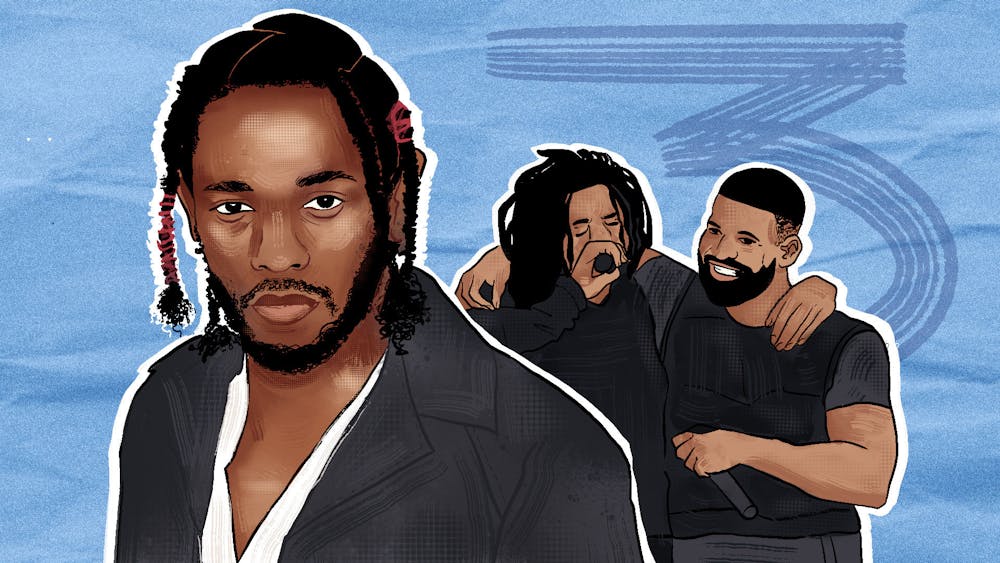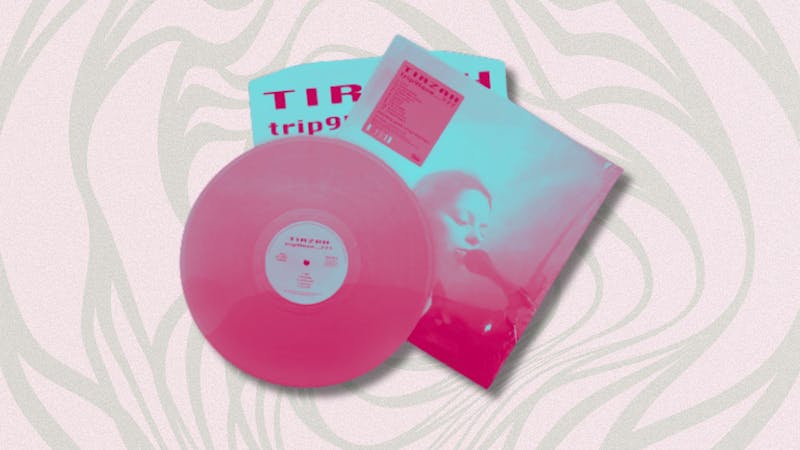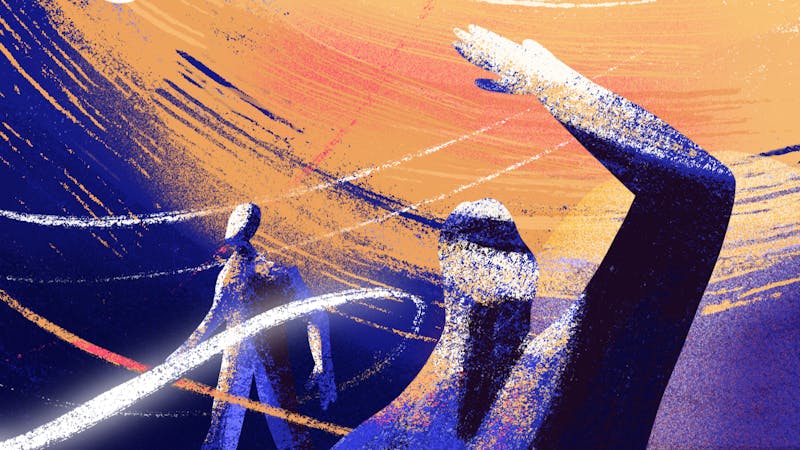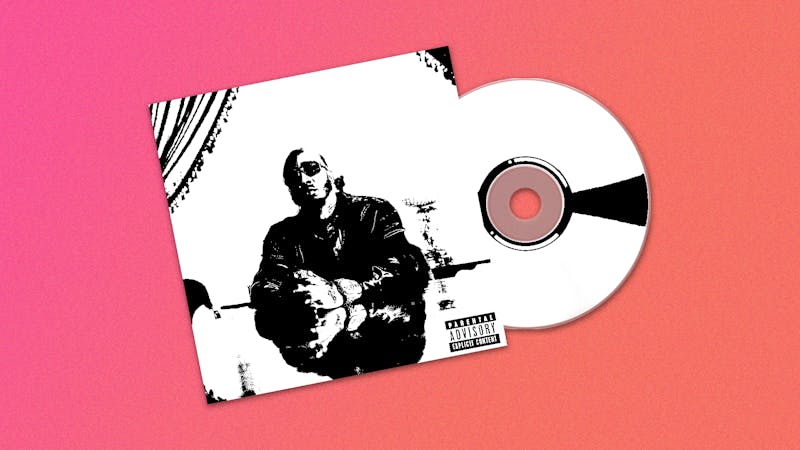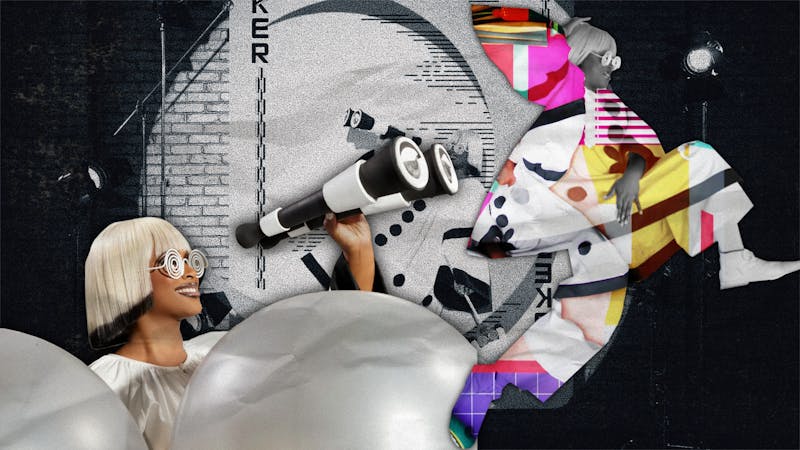Rap beef and long–lasting resentment fuel hip–hop’s eternally–burning creative fire. While other genres squirm uncomfortably under the pressure of competition, rap never shies away, refusing to stale under tedious PR statements and mutual respect. And what competition can be more interesting than that between Drake and Kendrick Lamar, hip–hop’s two dominant forces? We find commercial supremacy squaring up against the critically beloved: the stuff of great American lore. But, this beef is more than just celebrity entertainment. Rap battles breed something infinitely more valuable—good music.
March 26 is an easy marker of the beginning. Many will claim that sparks were first ignited when Lamar was featured on Future & Metro Boomin’s “Like That,” a song in which both Future and Lamar (but especially the latter), throw shots at both Drake and rapper J. Cole. However, the tension between the two artists had been growing for more than ten years prior.
In 2011, Drake released his sophomore record Take Care. Lamar, a lesser–known artist at the time, having just released his album Section.80, was featured on the album’s track “Buried Alive Interlude.” Though Take Care was a more melodic R&B project, Drake took a chance on a raw lyricist like Lamar, bringing him and A$AP Rocky on the Take Care tour as openers, further propelling Lamar’s career. Drake would also be featured on Lamar’s good kid, m.A.A.d city’s “Poetic Justice” in 2012, the album that would put Lamar on the map and introduce him to the world of commercial relevance.
However, their relationship was suspected to have soured following Lamar’s feature on Big Sean’s 2013 track “Control” on which Lamar alludes to overtaking a number of major artists, including Drake. Most artists didn’t respond to Lamar’s jabs, but Drake was rumored to take the shot personally. Thus began 10 years of subliminals between the two artists, which finally came to a head with Lamar’s feature on “Like That.” However, Drake explicitly acknowledges that that song was not the start of the rivalry in his response entitled “Push Ups,” where he remarks, “And that fuckin' song y'all got did not start the beef with us/This shit been brewin' in a pot, now I'm heatin' up.”
J. Cole was the first to respond to the track in his response “7 Minute Drill,” a fast–paced, high–energy track off of the—in retrospect, hilariously titled—album Might Delete Later. Days later, however, Cole would go on stage and apologize for the record, calling it the “lamest shit he ever did,” hoping Lamar “didn’t feel any type of way about it.” One week later, the track was removed from streaming services. Just like that, Cole fell. In the hours and days following, the internet had turned once–respected lyricist and heavy–hitter Jermaine Cole into a court jester.
However, this conflict’s first casualty did nothing to stop the coming altercations. Drake wouldn’t respond until April 13, when “Push Ups” leaked in high quality on the internet and officially released on streaming services on April 19, most likely due to sample clearing issues. “Push Ups” is a high–intensity record that takes jabs at Lamar as well as Future, Metro Boomin, Rick Ross, and a great plethora of artists who were teaming up against him simultaneously, a reality he acknowledges, asking “[w]hat the fuck is this, a twenty-v-one, n****?”
However, in an almost prophetic manner, it became clear how ready public bystanders were to count Drake out of the beef, alleging the Drake track was AI, or that he specifically leaked it to gauge public opinion before fully releasing, rather than understanding the reality of the sample issue. On April 19, Drake would go on to release an actual AI diss track, perhaps a further response to doubters who believed “Push Ups” was created with the use of AI, using the voices of hip–hop legends like Tupac and Snoop Dogg to further get under Lamar’s skin. It is rumored that this song was eventually removed due to complaints by the Tupac estate, perhaps ignited by Lamar’s camp.
Two weeks later, on May 3, Lamar would finally respond with “euphoria,” in which he calls Drake a master manipulator who appropriates Black culture. Drake responded the same day with “Family Matters,” his supposed “red button” track in which he exposes Lamar for domestic violence. Lamar immediately then dropped pre–recorded diss tracks “meet the grahams” and “Not Like Us.” The internet was ablaze, as hip–hop hadn’t seen this level of direct fire in years. However, as time went on, facts about the conflict were going largely unacknowledged.
For instance, Lamar’s “meet the grahams” is likely the biggest blunder of the entire beef, in which Lamar attempts to reuse Pusha T’s tactic of exposing Drake’s fatherhood as seen in “The Story of Adidon.” However, under Lamar’s pen, this attempt is rushed—he seems to allude to the fact that Drake has a daughter, a fact now understood to be false, singing directly to her for an entire verse on the track. On the soon–to–follow “Not Like Us,” however, he further takes the route of calling Drake a pedophile, one that delights the public and allows this error to be overlooked.
On May 5, Drake responded with “The Heart Part 6,” the last track to be released over the conflict. On this track, Drake feels less electric, defending himself, but seeming caught off guard. Immediately, the lowest common denominator opinion plastered on the internet declared Lamar’s victory over Drake.
But truly understanding the music released takes careful consideration. As mentioned, this beef was not just between Drake and Kendrick Lamar; Lamar was boldened by the backing of a great number of artists in the rap industry to take down Drake. (See “BBLDrizzy,” a rapping challenge later started by MetroBoomin to try and get the public to diss Drake because he himself could not. Drake didn’t take it lying down; on May 23, Drake released a feature on Sexyy Red’s new album rapping over the BBL Drizzy beat.)
Further, Drake, not Lamar, held up the pivotal back–and–forth throughout. The three–track run that most argue granted Lamar victory were three pre–recorded tracks, perhaps slightly edited to respond to the minutia of Drake’s past disses, but generally stood as their own songs. Take Drake’s fair–and–square loss to Pusha T in a rap battle six years prior as a point of comparison. It was evident that Pusha T listened to and directly responded to Drake's “Duppy Freestyle” within four days on the now–historic track “Story of Adidon.”
Finally, virtually none of Lamar’s jabs against Drake boasted new perspectives; both the claim that Drake is attracted to minors as well as the accusation that he is attracted to men have proliferated on the internet in memes for years. Lamar’s attempt to expose Drake for having a daughter was directly taken from Pusha T’s “Story of Adidon.” While similar criticisms can be leveraged against Drake’s jabs—like when he calls Lamar short—Drake pokes holes in Lamar’s image and facade, calling out Lamar’s dedication to filler pop features à la Taylor Swift and Maroon 5 as the face of lyrical rap. He makes daring remarks about Lamar’s own family amid Lamar’s claim that Drake is cosplaying black culture: “Ours sons should go play at the park, two light skin kids, that shit would be cute.”
A cursory glance at social media channels or even the Billboard Hot 100 will imply that Lamar has won in the court of public opinion. His monthly listeners on Spotify have more than doubled, and “Not Like Us” claimed the number one spot on the song chart all–genre. But, the general public’s desire to align themselves with Lamar over Drake is akin to claiming to hate fast food and then ordering Chipotle. A teen girl rolling her eyes at Taylor Swift to instead say she only listens to “real” indie artists like Phoebe Bridgers.
The narrative that there is “real” rap created by lyrically conscious artists and “fake” rap created by all else is a reductionist opinion, prescribed by those who do not fully understand the genre. Lamar has certainly offered hip–hop a great deal of creative inspiration, but he is simply one of many hip–hop artists that push the genre forward. Lamar’s strategy, though good enough to guarantee him success in a crowd of supporters, lacked the true grit and wit of a rap battle. Drake’s biggest mistake, however, was losing steam by the end of the battle.
Whether Drake’s days as the anti–hero are just beginning or now at their peak, two things are certain. If everyone is coming for one guy, he’s THE guy. And, everyone wins when the result of a rap beef is great new music.
